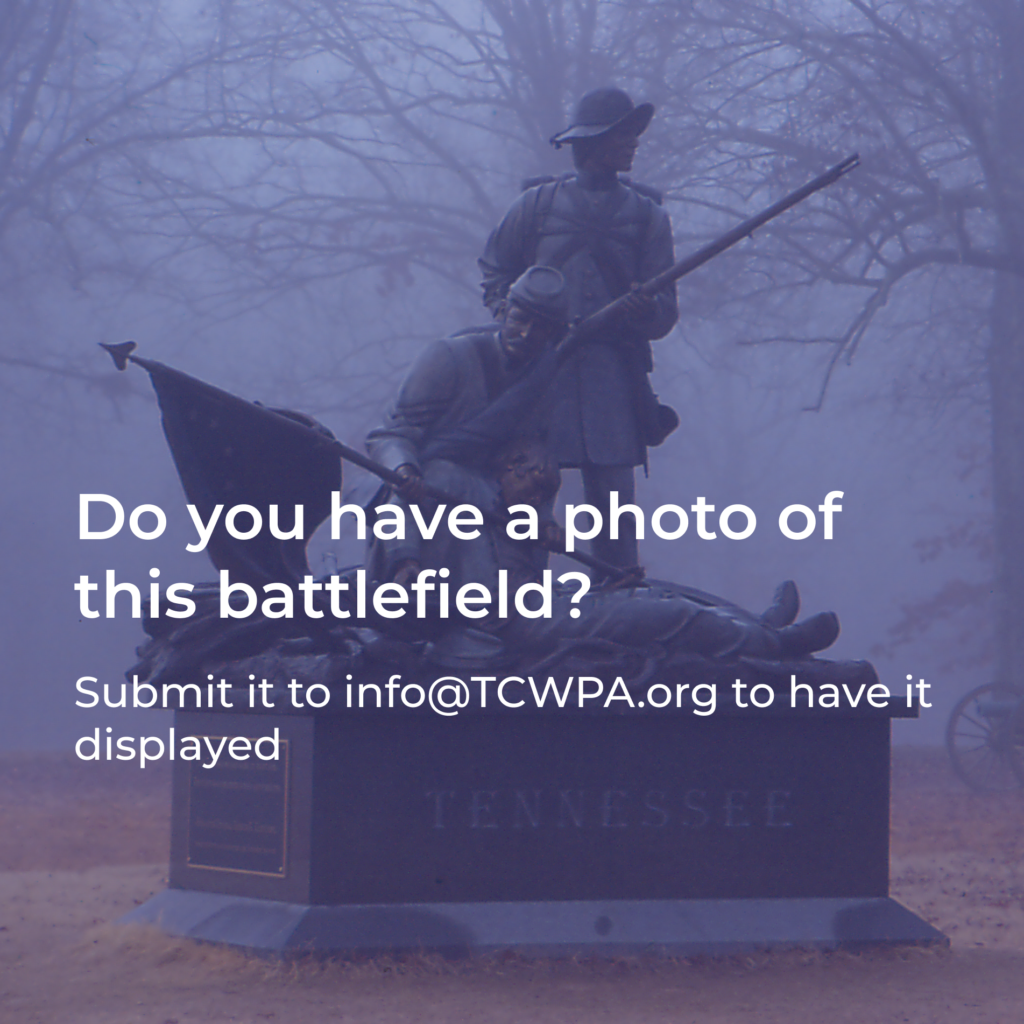In November 1863, a detachment of the Confederate Army of Tennessee commanded by Lt. Gen. James Longstreet advanced north from Chattanooga with two divisions and 5,000 cavalry to attack Maj. Gen. Ambrose E. Burnside’s Union Department of the Ohio troops at Knoxville, Tennessee. Following parallel routes both armies rapidly marched to Campbell’s Station, a village on the Kingston Road to Knoxville. Burnside hoped to reach the crossroads first and continue on to safety in Knoxville while Longstreet planned to reach the crossroads and hold it forcing Burnside to fight outside his earthworks. By a forced march on November 16 Burnside reached the Station and deployed first. Only15 minutes later, Longstreet’s Confederates approached and attempted a double envelopment to strike both Union flanks simultaneously. Maj. Gen. Lafayette McLaw’s Confederate division struck with such force that the Union right had to redeploy, but held. Brig. Gen. Micah Jenkins’s Confederate division maneuvered ineffectively and was unable to turn the Union left. Burnside ordered his two divisions to withdraw three-quarters of a mile to a ridge in their rear. The Confederates suspended their attack while Burnside continued his retrograde movement to Knoxville.
Trenton
As part of his West Tennessee “Christmas Raid,” Confederate Brig. Gen. Nathan Bedford Forrest attacked Trenton, Tennessee on December 20,

